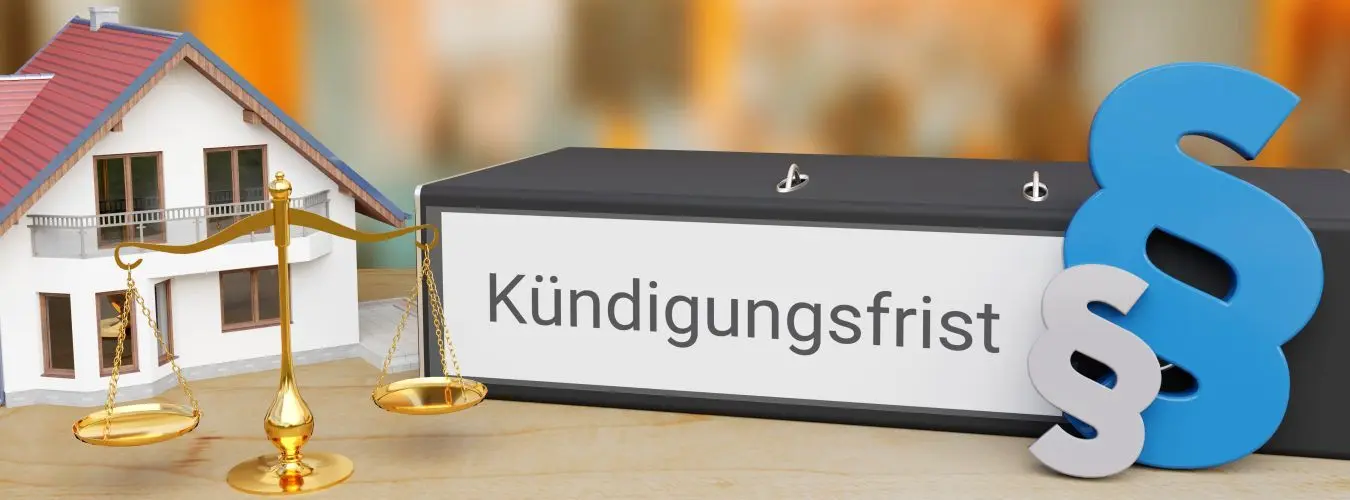The service charge statement is an important aspect of tenancy law that is equally important for tenants and landlords. In this detailed blog post, we will look at all relevant topics relating to the service charge statement and provide practical tips and templates.
What is a service charge statement?
The service charge statement is an essential part of many tenancies and plays a crucial role in the transparent billing of operating costs for tenants and landlords. It contains a detailed list of all costs incurred in addition to the basic rent for a property. Typically, the service charge statement includes expenses such as heating, water, waste water, waste disposal, janitor services, stairwell cleaning and other items relevant to operating costs. These costs are allocated to the tenants and are stipulated in many rental agreements.
The service charge statement is usually prepared once a year and sent to the tenant - either by the owner themselves or by a property management company commissioned by them. It is used to compare the actual costs incurred with the tenant's advance payments. If the actual costs are higher than the advance payments, the tenant must pay the difference. If they are lower, the tenant receives a refund.
Why is the service charge statement important for tenants and landlords?
The service charge statement is important for tenants and landlords alike, as it ensures transparency and fairness with regard to operating costs. Tenants can use the statement to see exactly what costs they have incurred and whether the advance payments were appropriate. For this reason, all relevant receipts and documents should be kept carefully.
For landlords, the service charge statement enables a fair distribution of the actual costs incurred and contributes to the financial planning and management of the property. A clear and precise service charge statement can avoid potential conflicts and strengthen the relationship of trust between the tenants.
Differences from the perspective of the tenant and landlord
The service charge statement differs in some aspects depending on whether you look at it from the perspective of the tenant or the landlord
Content: For the tenant, the service charge statement contains a detailed list of all apportionable costs incurred during the billing period. The landlord must transparently explain how the costs were calculated and what proportion is attributable to the individual tenant. For the landlord, the service charge statement is a compilation of the actual operating costs incurred and their distribution among the tenants.
Perspective: From the tenant's point of view, the service charge statement serves to check whether the advance payments were reasonable and whether the costs charged are justified. For the landlord, the statement is a tool for managing and documenting the operating costs of his property.
Responsibility: The landlord is responsible for the correct preparation and timely delivery of the service charge statement to the tenants. The tenants, for their part, are responsible for checking the statement and reporting any discrepancies in good time.
Legal significance: The service charge statement has legal significance for both parties. It is relevant for the tenant to be informed of any additional payments and to adjust their budget accordingly. For the landlord, it is important to ensure the correct billing of operating costs and to assert possible claims against the tenants.
Overview of operating costs
Operating costs are costs that arise in connection with the operation of a property and can usually be passed on to the tenants by the landlord. They include a variety of expenses that are incurred for the maintenance and proper operation of a property. Here are some of the most common operating costs explained in detail:
Heating costs: Heating costs include the expenses for providing heat in the property. This usually includes the cost of fuels such as gas or oil, as well as the maintenance and repair of the heating system.
Water costs: Water costs refer to the costs of supplying the property with drinking water and disposing of wastewater. In addition to the consumption costs, this also includes the costs for the maintenance and repair of the water pipes and systems.
Waste disposal costs: This includes the expenses for the collection, transportation and disposal of waste and garbage from the property. Waste disposal costs may vary depending on the region and local regulations.
Costs for building insurance: Building insurance covers damage to the building itself caused by fire, storm or mains water, for example. The premiums for this insurance are part of the operating costs.
Costs for house cleaning and maintenance: This includes expenses for the cleaning and maintenance of communal areas such as stairwells, corridors, entrance areas and outdoor facilities.
Costs for janitor service: The janitor is responsible for monitoring and maintaining the building as well as for minor repairs and maintenance work. The costs for this service can be part of the operating costs.
Costs for lighting common areas: The lighting of stairwells, corridors and other common areas also incurs costs that can be passed on to tenants as operating costs.
Legal regulations
The legal regulations on ancillary cost billing serve to protect tenants from excessive or unjustified ancillary costs and create a clear framework for landlords and tenants. They are enshrined in the German Civil Code (BGB) and the Operating Costs Ordinance (BetrKV). According to Section 556 of the German Civil Code, the landlord has the right to pass on ancillary costs arising from the operation of the building to the tenant. The costs must be clearly defined in the tenancy agreement.
The Operating Costs Ordinance (BetrKV) stipulates which types of costs may and may not be allocated. The costs that can be allocated include, for example, heating, water, waste water, janitor services, garden maintenance, waste disposal and insurance. However, costs for repairs to the building, administrative costs of the landlord or cosmetic repairs are not apportionable.
The landlord is obliged to prepare an annual service charge statement and send it to the tenant. This statement must be comprehensible and easy to understand and contain all relevant cost items as well as the underlying calculation methods.
Tenants have the right to check the service charge statement and object to it if there are discrepancies or doubts about its accuracy. However, it should be noted that objections must be made within a certain period, usually within 12 months of receipt of the statement.
Steps for landlords to correctly prepare a service charge statement
Collecting receipts: Landlords should carefully collect all relevant receipts and documents that are required for the calculation of service charges. This includes, for example, bills for water, heating, waste disposal, insurance, etc.
Recording the costs: The collected receipts must be systematically recorded and the corresponding costs allocated to the individual tenants. It is important to calculate the correct shares for each item and, if necessary, to take legal requirements into account.
Creating the statement: The landlord creates the service charge statement based on the recorded costs. This should list all apportionable costs transparently and be comprehensible for the tenants. It is advisable to make the statement comprehensible and clear.
Delivery to tenants: The completed service charge statement is delivered to the tenants in accordance with the statutory deadlines. Care must be taken to ensure that the statement is correct and complete in order to prevent possible discrepancies.
Terms and limitation periods
In order not to lose any claims or to preserve the possibility of asserting them in good time, certain deadlines should be observed in connection with the service charge statement. Both landlords and tenants should be aware that compliance with these deadlines is crucial in order to avoid disputes and protect their respective rights.
Preparation and delivery of the service charge statement: The landlord is legally obliged to prepare and send the service charge statement to the tenant within a reasonable period of time after the end of the billing period. This period is usually a maximum of 12 months after the end of the billing period.
Review period for tenants: Tenants have a reasonable period after receiving the service charge statement to review it and raise any objections or discrepancies. This review period is usually also 12 months.
Objection period for tenants: If the tenant has objections to the service charge statement, they must file an objection within a certain period in order to safeguard their claims. This period is usually also 12 months after receipt of the statement.
Limitation periods for claims from the service charge statement: Claims from the service charge statement are subject to limitation periods. These are generally three years from the end of the year in which the claim arose. This means that claims from a service charge statement that was created for the year 2022, for example, would expire on December 31, 2025 at the latest.
Submitted service charge statement too late? Consequences and implications for tenants and landlords
A service charge statement submitted late can have various consequences and implications for tenants and landlords:
For the landlord:
Loss of claims: Service charge statements submitted late can result in the landlord losing their claims against the tenants. If the statement is not prepared and delivered on time, any claims for additional payments by the landlord may become time-barred.
Notices and sanctions: Tenants have the right to demand a timely service charge statement. If these deadlines are repeatedly missed or ignored, tenants can take legal action or claim rent reductions.
For the tenant:
Uncertainty about costs: Tenants may be unsure about their actual costs due to a late service charge statement. This can lead to financial uncertainty and make it more difficult to plan the household budget.
Delays in reimbursement: If the tenant is entitled to a reimbursement, a late bill can lead to delays in payment. This can be particularly problematic if the tenant has budgeted the reimbursement for urgent expenses.
The rights and obligations of tenants and landlords in the event of a late service charge statement are regulated in the German Civil Code (BGB):
- Tenant's right to a timely statement: Tenants have the right to receive a timely service charge statement, usually no later than twelve months after the end of the billing period.
- The landlord's obligation to prepare and send the statement in good time: The landlord is legally obliged to prepare the service charge statement in good time and send it to the tenant. If he fails to do so, the tenant can set appropriate deadlines and, if necessary, take legal action.
- Possible consequences of non-compliance with the deadlines: If the deadlines are repeatedly missed, the tenant can, for example, claim a rent reduction or sue the landlord for damages.
Tips and tricks for tenants and landlords for checking the service charge statement:
By following these tips and tricks and carefully checking the service charge statement, tenants can ensure that they only pay the actual costs incurred and can identify and correct potential errors or discrepancies in good time.
For tenants:
- Correct allocation of costs: Tenants should ensure that all cost items in the statement are correctly allocated and correspond to the agreements in the rental contract.
- Plausibility of the calculation: The calculation methods and bases should be comprehensible for tenants. You should check whether the keys and distribution keys used are correct.
- Completeness of receipts: Tenants have the right to inspect the original receipts. They should ensure that all listed costs are supported by corresponding receipts and that no items are missing.
- Compliance with deadlines: Tenants should observe the statutory deadlines for checking and, if necessary, objecting to the service charge statement and act in a timely manner.
For landlords:
- Correct recording of costs: Landlords should ensure that all apportionable costs have been fully recorded and correctly calculated. Incorrect or missing information can lead to discrepancies.
- Transparent statement: The service charge statement should be transparent and understandable for tenants. Landlords should make sure that all cost items are listed clearly and concisely.
- Keep receipts: Landlords should keep all relevant receipts and documents carefully and make them available for inspection by tenants if required. Transparent document management can dispel any doubts on the part of tenants.
- Maintaining deadlines: Landlords are legally obliged to prepare the service charge statement on time and deliver it to the tenant. They should therefore keep a close eye on the deadlines and act in good time to avoid possible consequences.
Influence of the service charge statement on the tax return:
For landlords: The operating costs included in the service charge statement can be claimed as income-related expenses on the income tax return. This applies in particular to landlords who rent out their property and can book the operating costs as expenses. These include, for example, expenses for repairs, maintenance, administration costs and insurance.
For tenants: Tenants can also deduct part of their ancillary costs for tax purposes under certain conditions. For example, if they use a home office or have work-related travel expenses, they can claim proportionate operating costs such as heating, electricity or water as income-related expenses or business expenses.
Deductible costs in the utility bill for tenants and landlords:
Tenants:
- Home office: Costs for the home office can be tax-deductible under certain conditions. These include pro rata operating costs such as heating, electricity, water and waste disposal.
- Occupation-related travel costs: Tenants who have work-related travel costs can claim pro rata operating costs such as heating, electricity or water as income-related expenses.
Landlords:
- Repairs and maintenance: Costs for repairs and maintenance measures can be claimed as income-related expenses.
- Administration costs: Expenses for the administration of the property, such as property management or accounting costs, can be deducted as income-related expenses.
- Insurance: Premiums for insurance policies such as building insurance or liability insurance are deductible costs.
Important: Not all costs in the service charge statement are automatically deductible. The tax treatment can vary depending on the individual situation. Tenants and landlords should therefore consult a tax advisor if necessary to ensure that they take advantage of all tax-saving opportunities.
































